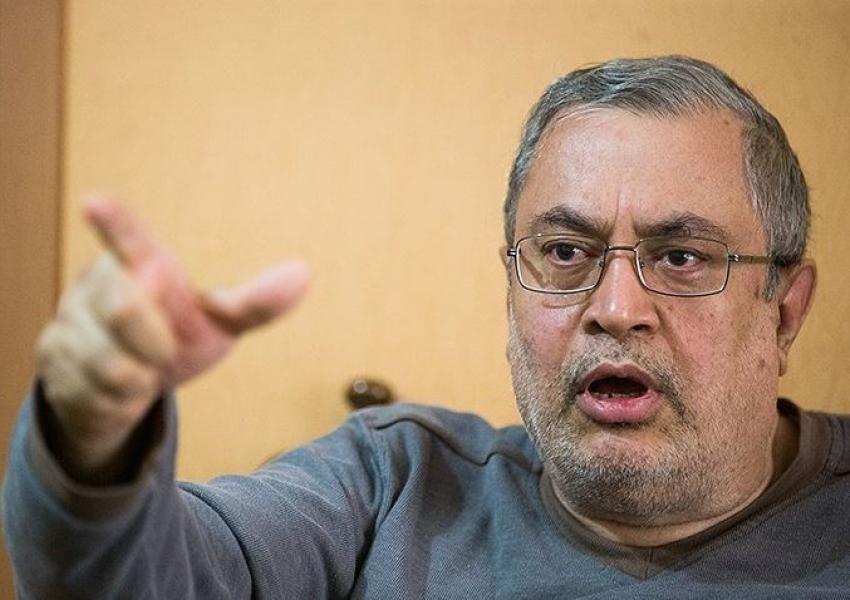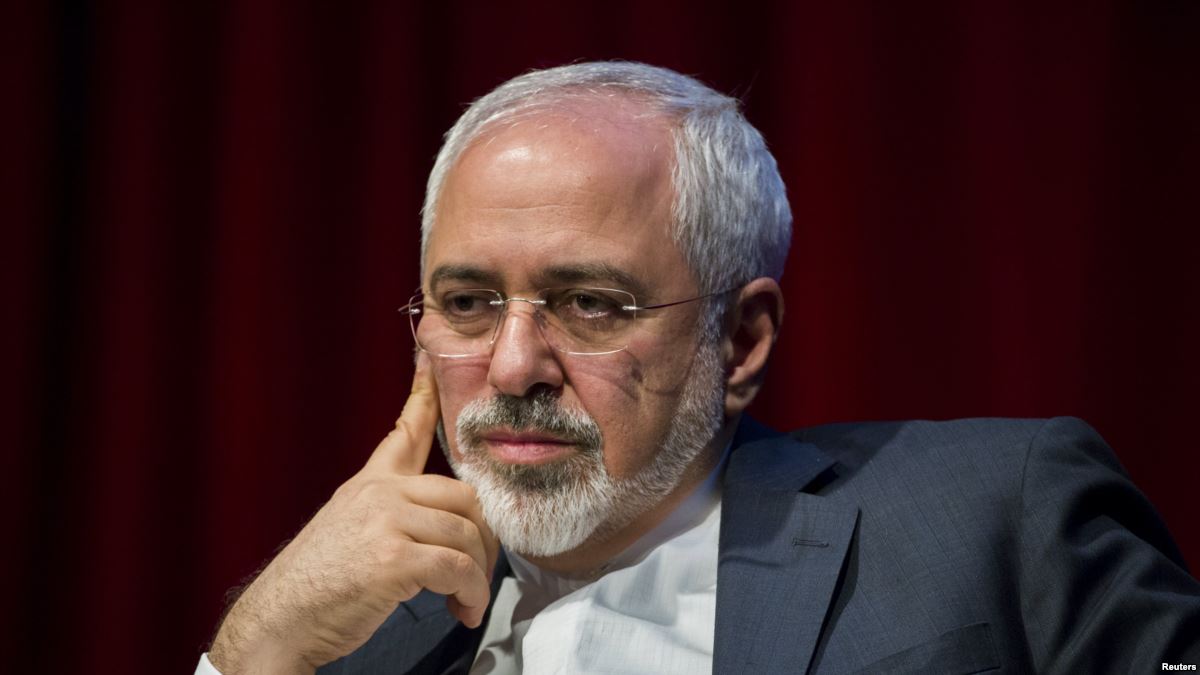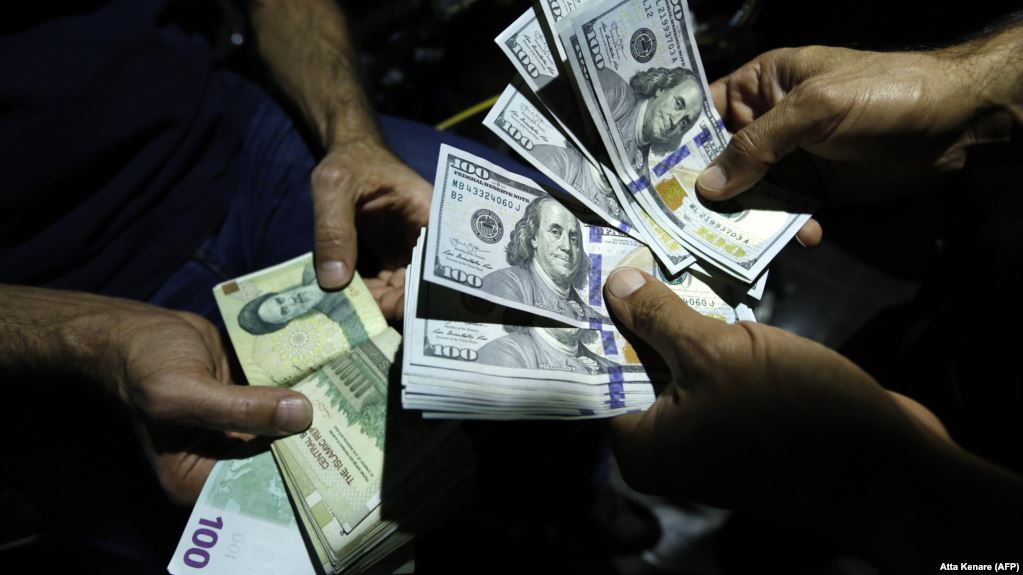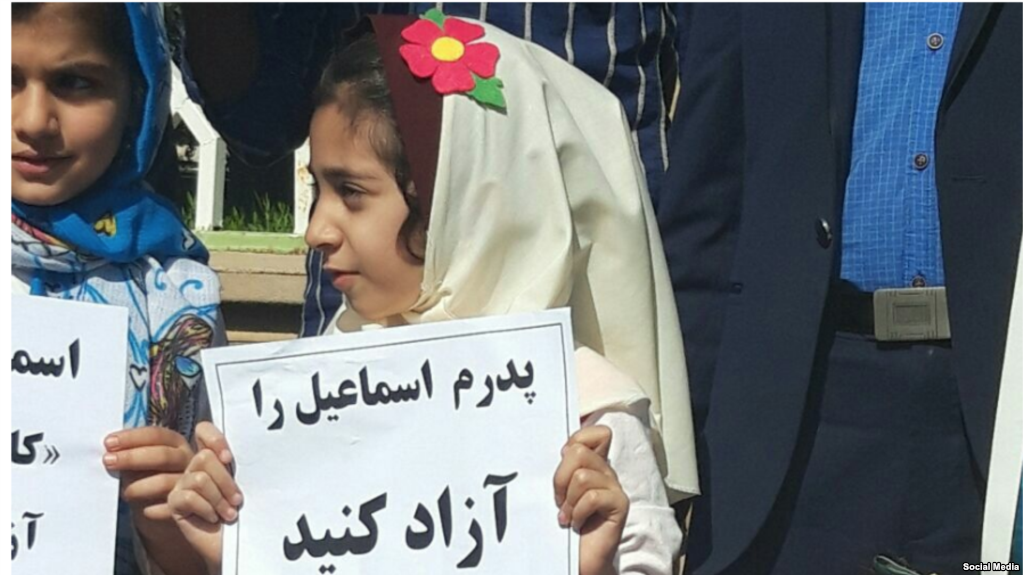
Mr. Rouhani, You either don’t Know or Pretend Ignorance
Iranian President Hassan Rouhani recently claimed that the cause of smuggling goods to other countries is the cheaper prices in Iran. Then he gave the example of Iraq, where the price of meat and gas is more expensive than in Iran, which has resulted in these items being smuggled into that country. The editorial of Akhbar Sanat questions Rouhani’s claim, arguing that it doesn’t offer any solution to the problem of smuggling; it is an attempt to merely whitewash the issue of hiked prices in Iran.
From an academic point of view, what Rouhani has said is obviously right. However, the point is that he is the head of the executive branch and not an academic. What is more, Rouhani talks as if the prices inside Iran are so low resulting in Iranians enjoying a better living standard. The price of goods and services is very high compared to income levels, and the majority of Iranians have serious problems in making ends meet.
The editorial continues to mention that under such conditions, Rouhani talking of higher prices in other countries is disgusting and embarrassing. Iranian officials keep talking about the high price of gas in other countries, without mentioning the astronomical price of cars in Iran.
Whenever Iranian officials begin to pay Iranians in dollars, only then can they talk about prices in other countries. For the time being, they should keep quiet and not add insult to injury. Apparently, Rouhani doesn’t pay enough attention or pretends ignorance to the real cause behind the smuggling of Iranian goods to foreign countries which is the severe drop in the value of Iran’s national currency.
The editorial concludes by saying that Rouhani should stop talking about these issues and do something to save the people – the very people who are becoming poorer and much more worried by every passing day.
Akhbar Sanat – February 20
Fighting Money Laundering
The editorial of Roozan emphasizes the need to fight money laundering in Iran by ratifying the bills of the Financial Action Task Force (FATF).
Part of the money of credit institutes is transferred through money laundering and is no longer traceable. The owners of credit institutes and their families have pocketed the money, and people who have lost their money keep on demonstrating in front of the Central Bank and other places asking for their money. To avoid any possible problems, the government gave 30,000 billion tomans to depositors, which means that this significant amount of deposits was laundered by illegal institutes.
The editorial continues to say that most of the dirty money is gained through selling narcotic drugs, smuggling goods or through bribery. The individuals who obtain such money illegally cannot announce the source of their money, so they turn to money laundering. This issue can be resolved by ratifying FATF bills because they make it compulsory for individuals to announce the source of the money they have received.
All over the world, banks are responsible to ask their depositors for an explanation with regard to the source of their money, except for Iran. Most of the money laundering in the country takes place through merchants, factory owners, and large-scale investors. Even though the Iranian government proposed a bill to act against money laundering in parliament and it was ratified by lawmakers, however, some individuals and interest groups have prevented the final ratification of this bill in Iran.
Money laundering is even possible through the official banking system. Currently, the banking system has granted 150,000 billion tomans of loans to individuals and companies, and they haven’t returned this amount. This money doesn’t return to the banking system, and they offer bogus invoices to get more money.
The editorial concludes by stating that embezzlement and rent-seeking have become the source of dirty money in Iran.
Roozan – February 19
A Simple News!
The editorial of Mardomsalari goes over the implications of a rather simple news story which reflects the dire conditions in Iran, emphasizing that the worst catastrophe in Iranian society is “indifference” towards such catastrophes.
“A young addict killed 3 people over 20 kilograms of rice.” There is no need to give more details about this story. In this short sentence, we can see the conditions in the country: unemployment, addiction, soaring prices of essential goods, and the lives of people being worthless. All these chronic problems have been summed up in this catastrophe that took place in a small town.
The editorial continues by stating that perhaps if this news was published in another place or at another time, this tragedy would have alarmed Iranian public opinion, and the media would have spoken about it for a long time, as well as sociologists and psychologists studying its reasons. However, this story didn’t attract any attention in today’s Iran and was lost in other news.
There are other stories that are alarming under ordinary conditions such as ever-increasing prices, cheating in the distribution of essential goods, a decline in the value of properties, and half of Iranian society living under the poverty line. Nevertheless, Iranian society has become numb and doesn’t feel such catastrophes any longer, which is why everybody easily accepts that the value of life is less than 7 kilograms of rice. They justify it by talking of unemployment and economic pressures pushing the youth towards addiction and murder!
The editorial concludes by saying that despite all the problems, one must say that the worst tragedy is getting used to tragedies, which is the biggest tragedy which has inflicted Iranian society. Iranian society had faced such problems repeatedly before, but “hope” helped people to get out of those conditions. However, today we must accept that there is no hope in society.
Mardomsalari – February 18
High Prices for Iran’s New Year’s Eve and the Nightmare of Iranian Households
As we get closer to the beginning of the Iranian New Year (called Nowruz in Persian, starting from March 21), the soaring prices of goods have made it very difficult for Iranian families to celebrate this traditional event. The editorial of Jahan Sanat focuses on why the government and parliament must work together to find a solution to curb inflation and to bring back happiness to low-income families in Iran.
From the meetings recently held by lawmakers and the economic minister, it can be gathered that they are going to blame the dollar and its fluctuations in the currency market, profit-seeking opportunists, and sanctions as main factors behind the day-to-day price hikes Iran is witnessing particularly of essential goods. However, this will not solve the people’s problems. Meanwhile, soaring prices on the eve of Nowruz have put additional pressure on Iranian households.
The editorial goes on to say that the people expect the lawmakers and the government to put an end to the soaring prices with necessary legislation and supervision for once and for all. What seems to be more important than the blame-game is for officials to have the determination to fight soaring prices that have destroyed people’s livelihoods. Prices of household appliances, gold, housing, vehicles and meat have turned into a bitter and painful nightmare for workers and employees whose salaries have been under the poverty line for years.
It is about time that each official, lawmaker or manager puts himself in the shoes of the workers who go home empty-handed night after night, so they can understand the pain Iranian families go through. Workers’ salaries are not enough to cover the daily expenses of their families, let alone for the usual purchases made during Nowruz such as clothes, fruits, and sweets!
The editorial concludes by saying that with such soaring prices, Nowruz is no longer a time for happiness, unless the lawmakers and the government get together and find a way to fight inflation.
Tejarat – February 17

Iranian “Reformist”: Rouhani might not Last and Famine is on the Way

Saeed Hajarian, a well-known “reformist”, says Hassan Rouhani’s Government is facing grave difficulties and his presidency might not last.
He adds that due to increasing economic pressures, famine might break out in Iran. “If we reach that point, the permission for negotiating with the U.S. will definitely be issued,” asserted Hajarian.
He also referred to Iran’s upcoming elections next year, saying people will lose hope not only in the ballot box but also in “the whole country’s governing system” because of livelihood problems. “Then they will neither know principlists, nor reformists”, noted Hajarian, “And they will neither care about parliament nor government.”
Another well-known “reformist”, Mostafa Tajzadeh, said with regard to negotiations with America that if the conditions become critical, then the structure of power must and will take different decisions.
During Iran’s unrest in January 2018, people chanted “principlists! reformists! The game is over”—which provoked negative reactions among “reformists”.
Iran International
Zarif, Deny’s Human Rights Violations in Iran!

The Iranian Foreign Minister Mohammad Javad Zarif, in an interview during the Munich Security Conference, answered a question regarding the conditions of imprisoned environmental activists in Iran, saying that the Iranian government doesn’t have the right to interfere in the judiciary system; it can only make sure that the judicial procedures are enforced properly, and the detainees’ rights aren’t violated.
Zarif’s speech in this conference was full of contradictions. He criticized the unilateral policies of Donald Trump’s administration for changing the regime in Iran, while saying that Europe’s INSTEX financial channel for trades with Iran is not enough to save the nuclear deal.
Zarif defended the Iranian state in which Hassan Rouhani’s government is powerless, and incidentally, this powerlessness was manifested when the host asked Zarif about the imprisonment of the environmental activists.
Zarif talked of the detainees’ rights while it has been more than a year that Sam Rajabi, Amir Hossein Khaleghi, Hooman Jokar, Sepideh Kashani, Nilofar Bayani, Taher Ghadirian, Abdolreza Koohpayeh, and Morad Tahbaz have been detained by the IRGC Intelligence Organization without any specific charges. In addition, one of the detainees, Kavoos Seyyed Emami, died in custody for reasons that are not clear yet.
More than a week ago, the third court session of the environmental activists was held in the absence of the defendants’ trusted lawyers. One cannot claim that the detainees’ rights were observed in the court, headed by Judge Abolghassem Salavati – who is notorious for unfair rulings issued since 2009.
At the same time, according to media reports, security agents are trying to make a film against these activists. The families of these detainees have recently written a letter to the Islamic Republic’s Leader and pointed out to the interrogation of these environmental activists under severe conditions, calling for their release.
Niloofar Bayani, one of the imprisoned environmental activists, reportedly said in her second court session that she had been coerced to confess under pressure and threats by the interrogators.
Hassan Rouhani’s government has not taken any measure in this regard so far and has not made any objections against the detainees’ rights being violated. Even though the Ministry of Intelligence has announced the innocence of the detainees, the government has not resolved or does not have the power to follow up the rights of these detainees.
zeitoons
Khamenei Slams EU and the US over the Warsaw Summit;
Rouhani Talks of Muscle Flexing with the US

The Islamic Republic’s Supreme Leader Ali Khamenei severely criticized the U.S. and the EU and called the Warsaw Summit on peace and security in the Middle East a “failure”. Khamenei added that in the Warsaw Summit, “officials of apparently Muslim countries” assembled with Israeli authorities, hence “dishonoring themselves.”
In another part of his speech, Khamenei lambasted Europe, calling its behavior “deceitful.” He noted that the Americans are openly defying Iran, but officials must be cautious in dealing with the Europeans as they act deceitfully. Khamenei then urged his establishment and its affiliated institutions not to be deceived by the Europeans.
The Iranian President Hassan Rouhani too called the Warsaw Summit a failure, saying that muscle flexing between Iran and America has reached its highest point now. Rouhani urged that these conditions have been rare in the past, asserting that the U.S. is using all its power against the “nation of Iran”.
Rouhani then called the Warsaw Summit “unsuccessful” and “shameful”, adding that Americans failed once in May when they wanted Europeans to join them in exiting the JCPOA.
Rouhani stressed the U.S. authorities first announced that the Warsaw Summit was against Iran, but later changed their words under pressure. They had to say the meeting was not about Iran, but about peace, security and weapons of mass destruction.
Rouhani said Iran is after friendly relations with the European Union — “however, we do not accept anyone’s irresponsible behavior.” He added the EU should fulfill its commitments and avoid having new expectations.
IRIB News Agency
Radio Farda
Iran in Search of a $5 Billion Loan from Russia; the Dollar’s Price is Rising Again

Under the mounting pressure of US economic sanctions, the Islamic Republic becomes more and more dependent on Russia and China. Iranian lawmakers approved an act to extend authorization for the government to take a loan up to $5 billion from Russia.
The parliament had previously granted the authorization to the government to take the $5 billion loan in 2016; so far Russia has paid $2 billion to Iran directly or in the form of investment.
Meanwhile, the price of the dollar started to rise again, reaching more than 13000 tomans—the highest rate in the past three months. This recent rise is said to be related to the Expediency Council postponing the approval of Iran joining the Palermo Convention (United Nations Convention against Transnational Organized Crime).
Iran’s Expediency Council announced on February 16 that its recent meeting on the Palermo Convention was fruitless, putting off its decision in this regard to another session.
The deadline set for Iran by the Financial Action Task Force (FATF) will expire this week. The Palermo Convention and CFT (Combating the Financing of Terrorism) are two of four recommendations proposed by FATF for Iran to join.
As the fluctuations in the Forex market continued, Tehran’s police chief announced that 20 foreign exchange dealers were arrested. Hossein Rahimi pointed out there are nearly 190 currency dealers in prison and almost all illegal foreign currency shops have been sealed.
Tehran’s police chief also warned that the police will confront those who announce false prices of currency in cyberspace in order to increase its rate.
Radio Farda
Radio Farda
Mother of Jailed Worker Hospitalized after Being Attacked, Arrested by Judiciary Officials

The mother of detained worker activist Esameil Bakhshi has been hospitalized after being attacked and arrested by judiciary officials, according to the worker’s syndicate of Haft Tapeh Sugarcane Factory.
This happened when she went to the prosecutor’s office in the city of Shush, southern Iran, to inquire about her son’s conditions in prison.
When Bakhshi’s mother asked the prosecutor to clarify her son’s situation, he issued her arrest warrant. Then, as officials rushed towards Bakhshi’s mother to handcuff her, she fainted due to a heart problem. She was transferred to a hospital afterward because of her critical conditions.
Bakhshi’s family, including his daughter, staged a protest in front of Shush’s justice office in protest against the continuation of his arrest.
Esmaeil Bakhshi has reportedly been under severe pressure to confess again and write a letter of remorse over his previous statement about being tortured in detention. He was also pressured to falsely confess that all he said was dictated by “enemies of the Islamic Republic” and the opposition media.
Bakhshi was taken into custody for the second time after talking about his torture in jail. The arrest was made after his coerced confessions were aired on Iran’s state TV.
Peike Iran
VOA Persian
